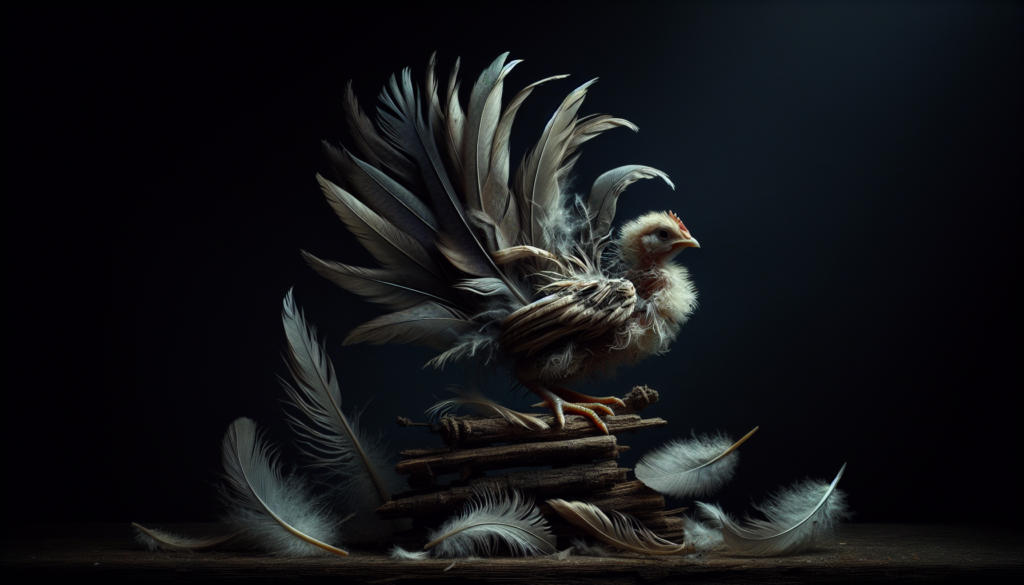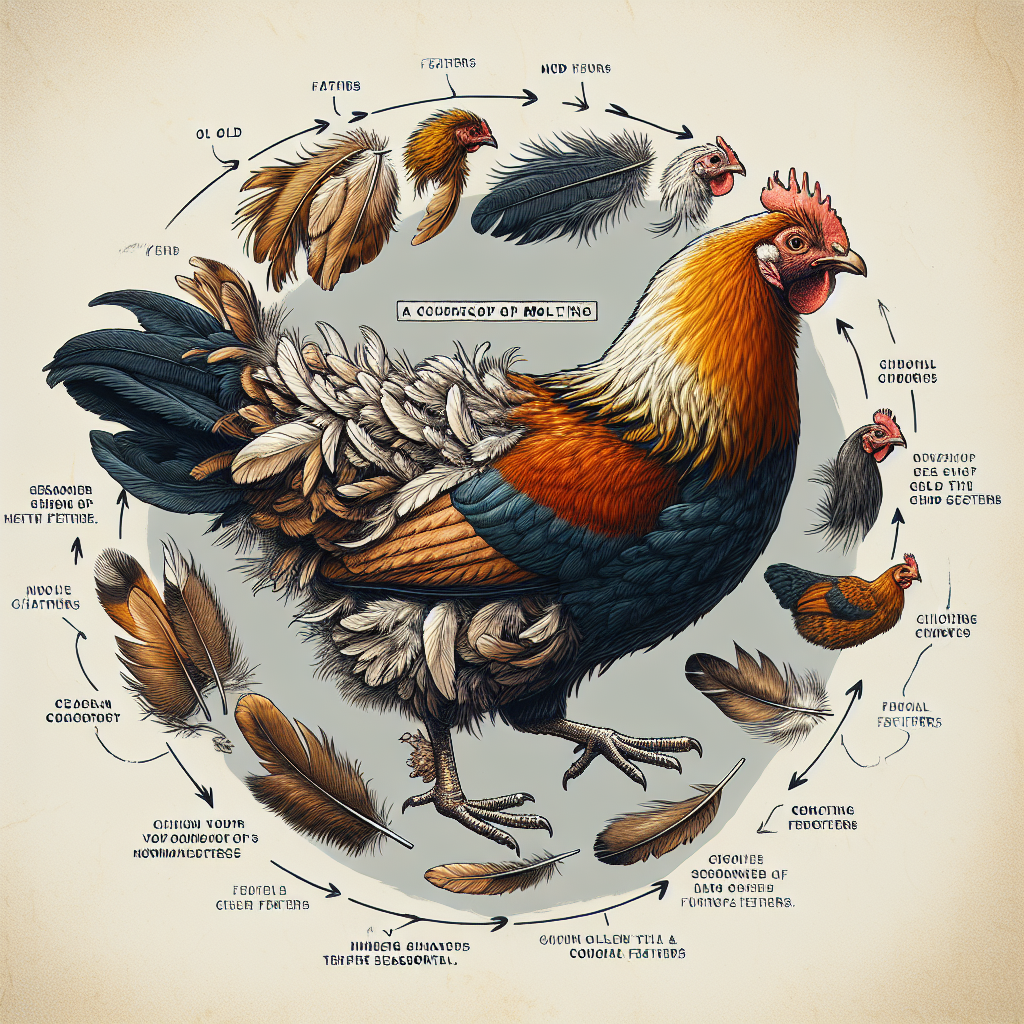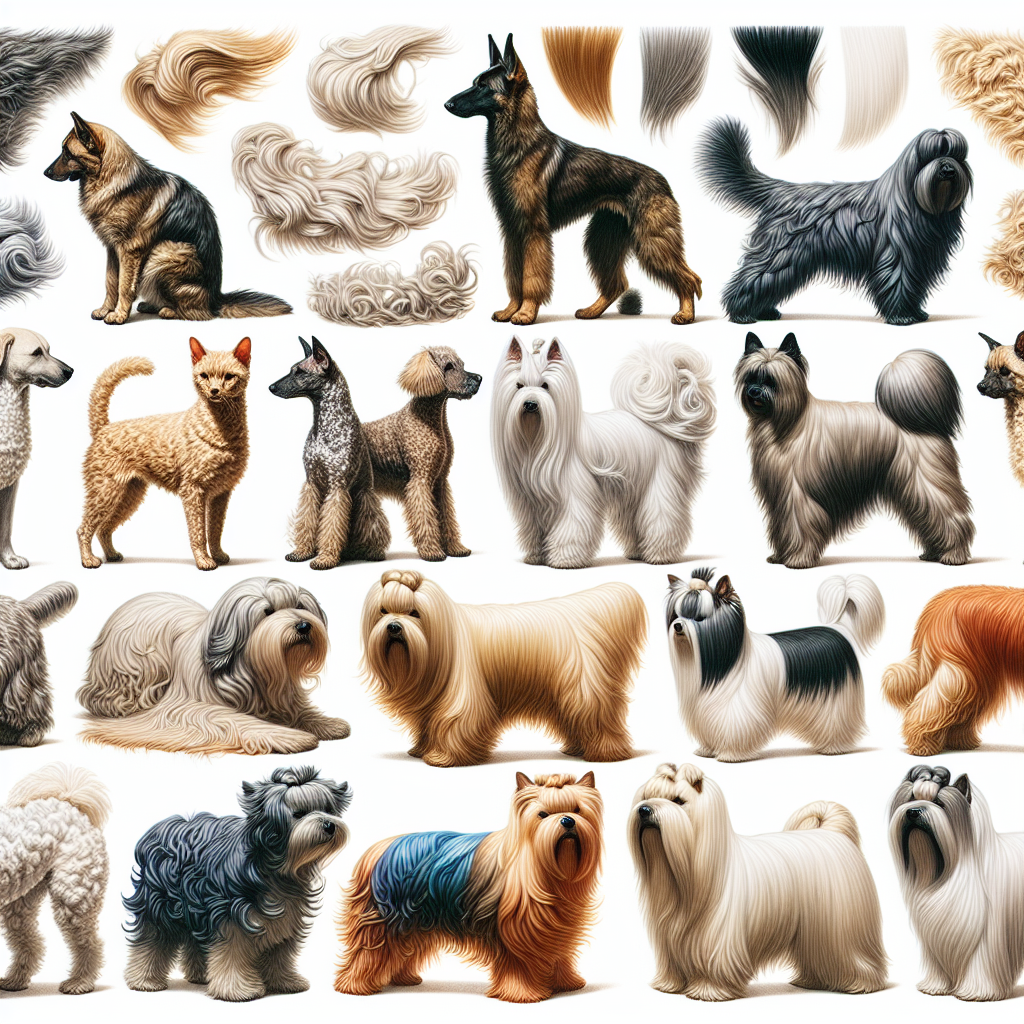Chickens are often cherished companions and valuable sources of fresh eggs, so it’s important to ensure their overall well-being, especially during the molting season. As a responsible owner, you may find yourself pondering what you can add to your chickens’ diet to support their feather health during this transformative period. Fortunately, there are a few key ingredients you can incorporate into their daily meals that will promote strong, lustrous feathers, leaving your feathered friends feeling their absolute best.
Basic Understanding of Molting in Chickens
What is molting?
Molting refers to the natural process of shedding and regrowing feathers in chickens. It is a normal part of their life cycle and happens annually. During molting, chickens go through a period where they lose old feathers and grow new ones to replace them.
Why do chickens molt?
Chickens molt primarily for two reasons: to replace old and worn-out feathers and to prepare for colder temperatures. Feathers play a crucial role in regulating body temperature and keeping chickens warm. As feathers become worn or damaged over time, molting allows chickens to grow fresh, resilient feathers that provide better insulation during the winter months.
How long does molting last?
The duration of molting can vary from chicken to chicken, but it typically lasts for several weeks. The molting period can be influenced by factors such as breed, age, and environmental conditions. Some chickens may experience a partial molt where they shed and replace feathers gradually throughout the year, while others may undergo a more intense molt once a year.
What happens during molting?
When chickens molt, they go through a series of physiological changes. Initially, feathers become loose and start to shed. This shedding process can be noticeable and may involve the entire body or specific areas, such as the neck or wings. Once old feathers have been shed, specialized cells in the chicken’s skin begin producing new feathers. These new feathers start as small buds and gradually grow into mature feathers. During molting, chickens may appear scruffy or disheveled as they go through the transition from old to new feathers.
Nutritional Needs During Molting
Importance of proper nutrition
Proper nutrition plays a vital role in supporting feather health during molting. Feathers are made up of protein, and providing chickens with a well-balanced diet ensures they have the necessary nutrients to grow healthy feathers. Inadequate nutrition during molting can lead to slower feather regrowth, feather abnormalities, and increased susceptibility to disease and environmental stressors.
Key nutrients for feather health
Certain nutrients are particularly essential for supporting feather health during molting. They include protein, amino acids, vitamins, and minerals. Protein is the building block of feathers, and an adequate intake is crucial for healthy feather growth. Amino acids, such as methionine and lysine, are vital for ensuring proper feather development. Additionally, vitamins like vitamin A, vitamin E, and biotin, as well as minerals like zinc and copper, contribute to the strength and condition of feathers.
Understanding protein requirements
During molting, a chicken’s protein requirements increase to provide the necessary building blocks for feather regrowth. It is recommended to provide a protein-rich diet containing around 16-18% protein during this time. While chickens can obtain protein from both animal-based and plant-based sources, it is important to ensure the quality and bioavailability of the protein for optimal feather growth.
Role of amino acids
Amino acids are the building blocks of proteins and play a crucial role in feather development. Methionine is particularly important as it contains sulfur, which is necessary for the formation of keratin, the main protein in feathers. Lysine is another essential amino acid that supports feather growth and development. Ensuring an adequate intake of these amino acids is key to supporting healthy feathers during molting.
Essential vitamins and minerals
Vitamins and minerals are necessary for various aspects of feather health. Biotin, a B vitamin, contributes to the strength and integrity of feathers. Vitamin A promotes cell growth and helps maintain healthy skin and feathers. Vitamin E acts as an antioxidant, protecting feathers from oxidative damage. Minerals like zinc and copper are involved in feather pigmentation and strength. Including a diverse range of fruits, vegetables, and supplements in the diet can help ensure chickens receive an adequate supply of these essential nutrients.
Natural and Homemade Remedies
Usage of herbs and edible plants
Using herbs and edible plants in the diet of molting chickens can provide additional benefits for feather health. Herbs such as basil, parsley, and nettle are rich in vitamins and minerals that promote feather growth and overall health. They can be added to the diet in various ways, such as mixing them with regular feed or serving them as treats.
Benefits of herbs in supporting molting
Herbs have numerous benefits for supporting molting chickens. They provide additional nutrients, antioxidants, and bioactive compounds that aid in feather regrowth and strengthen the immune system. Herbs can also have calming and stress-relieving properties, which can be beneficial during the sometimes stressful molting period.
Herbs recommended for feather growth
Several herbs are particularly beneficial for supporting feather growth during molting. Nettle is rich in iron and other minerals, promoting healthy blood circulation and strong feather development. Basil contains vitamins A and C, which are important for feather health. Calendula has anti-inflammatory properties and can soothe irritated skin during molting. Including these herbs in the diet can provide a natural boost to feather health.
Homemade treats to promote feather health
Making homemade treats for molting chickens can be a fun and nutritious way to support feather health. Treats like scrambled eggs, cooked quinoa, or cottage cheese provide a protein boost that aids in feather regrowth. Additionally, fruits such as watermelon or berries can provide hydration and beneficial antioxidants. These treats can be offered in moderation and should complement a well-balanced diet.
Commercial Feed Additives
Supplements for molting chickens
Commercial feed additives specifically formulated for molting chickens can be beneficial in supporting feather health. These additives are designed to provide the necessary nutrients and amino acids required for optimal feather growth. They often come in the form of pellets or powders that can be mixed with regular feed or provided separately.
Types of feed additives available
There are various types of commercial feed additives available for molting chickens. Some may focus on providing concentrated sources of protein and amino acids, while others may contain specific vitamins and minerals known to support feather health. It is important to carefully read the labels and choose additives that are specifically intended for molting chickens.
Choosing the right commercial products
When selecting commercial feed additives, it is essential to choose products from reputable brands that prioritize quality and safety. Look for additives that have been tested and approved for use in chickens and are free of unnecessary additives or fillers. Reading reviews and seeking recommendations from other chicken owners can also help in choosing the right products.
Effectiveness and safety of additives
The effectiveness of commercial feed additives can vary, and results may not be immediate. It is important to follow the recommended dosages and allow sufficient time for the nutrients to have an impact on feather regrowth. However, it is always advisable to consult with a veterinarian or poultry nutritionist before introducing any new additives to ensure they are safe and appropriate for your chickens.
Protein-Rich Foods
High-protein options for chickens
Feeding protein-rich foods is crucial during molting to support feather regrowth. Several options provide an excellent source of protein for chickens, both from animal-based and plant-based sources. Incorporating these foods into the diet can ensure chickens receive the necessary amino acids for optimal feather health.
Animal-based protein sources
Animal-based protein sources include cooked eggs, mealworms, earthworms, and fish meal. Cooked eggs are highly digestible and provide a concentrated source of protein. Mealworms and earthworms are natural sources of protein that chickens can often source themselves from the environment. Fish meal is a commercially available option that contains essential amino acids for feather development.
Plant-based protein sources
Plant-based protein sources for chickens include soybeans, peas, lentils, and spirulina. Soybeans are a common ingredient in many commercial poultry feeds and are an excellent source of protein. Peas and lentils are high in protein, fiber, and other nutrients. Spirulina, an algae-based superfood, is rich in amino acids and offers additional health benefits beyond protein.
Benefits of feeding protein-rich foods
Feeding protein-rich foods during molting provides the necessary building blocks for feather regrowth. Protein is essential for the synthesis of keratin, which forms the structure of feathers. A diet rich in protein helps ensure strong and healthy feathers, reducing the risk of feather abnormalities and promoting overall feather health.
Optimal Diet and Feeding Practices
Balancing the diet during molting
During molting, it is important to provide a well-balanced diet that meets the nutritional needs of chickens. The diet should include a good mix of protein, vitamins, minerals, and other essential nutrients. By offering a diversified diet, chickens have a better chance of receiving all the necessary nutrients required for optimal feather growth.
Understanding the impact of excess or deficient nutrients
Excess or deficient nutrients can have a significant impact on feather health during molting. Excessive protein intake, for example, may not necessarily lead to faster feather regrowth and can potentially cause stress on the kidneys. Conversely, a deficiency in essential amino acids, vitamins, or minerals can result in slower feather regrowth or weaker feathers. Maintaining a balanced diet is key to avoiding these issues.
Feeding practices to support feather growth
In addition to providing a balanced diet, there are a few feeding practices that can support feather growth during molting. Ensuring a clean and abundant water supply is important for overall health and feather development. Avoiding sudden changes in feed or introducing new foods gradually can prevent digestive issues that may impact nutrient absorption. Regularly monitoring feed consumption and adjusting the diet accordingly can also help ensure chickens are receiving adequate nutrition during molting.
Feeding Fresh Fruits and Vegetables
Incorporating fruits and vegetables into the diet
Feeding fresh fruits and vegetables during molting offers several benefits for feather health. Fruits and vegetables provide a range of essential vitamins, minerals, and antioxidants that support overall health and feather regrowth. They can be offered as standalone treats or mixed with other foods.
Recommended fruits for feather health
Certain fruits have specific benefits for feather health and can be included in the diet of molting chickens. Berries, such as blueberries and strawberries, are rich in antioxidants that protect feathers from oxidative damage. Watermelon is hydrating and helps maintain moisture in the skin and feathers. Apples and pears provide vitamins and fiber that contribute to overall health.
Benefits of feeding fresh produce
Feeding fresh produce to molting chickens ensures a diverse array of nutrients. Fruits and vegetables provide vitamins, minerals, and antioxidants that support feather growth and strengthen the immune system. They also help promote hydration, which is essential for overall health and feather condition.
Vegetables suitable for molting chickens
Several vegetables are suitable for molting chickens and can be included in their diet. Leafy greens like spinach, kale, and lettuce are rich in vitamins and minerals that support feather regrowth. Carrots are high in beta-carotene, which is converted to vitamin A in the body and plays a critical role in feather health. Other suitable vegetables include broccoli, cucumbers, and zucchini, which provide additional nutritional benefits.
Sources of Omega-3 Fatty Acids
Importance of omega-3 fatty acids for feathers
Omega-3 fatty acids are essential for feather health as they promote feather strength, flexibility, and shine. These fatty acids contribute to the structural integrity of feathers and help reduce feather breakage and brittleness. Including sources of omega-3 fatty acids in the diet can enhance feather quality and overall feather health.
Seafood as a natural source of omega-3
Seafood, particularly oily fish like salmon, mackerel, and sardines, is a natural source of omega-3 fatty acids. Feeding small amounts of canned fish in water, or providing cooked and mashed fish as a treat, can supply additional omega-3 fatty acids to molting chickens. However, moderation is key, as excessive fish intake can lead to an imbalance of other nutrients.
Plant-based sources of omega-3
For those who prefer plant-based options, flaxseeds and chia seeds are excellent sources of omega-3 fatty acids. Ground flaxseeds can be sprinkled on regular feed or mixed with other foods, while chia seeds can be soaked in water to form a gel-like consistency before offering to chickens. These plant-based sources provide a sustainable alternative to seafood for obtaining omega-3 fatty acids.
Supplements for omega-3 intake
If it is challenging to incorporate natural sources of omega-3 fatty acids into the diet, commercially available supplements can be considered. These supplements are specifically formulated to provide the necessary amounts of omega-3 fatty acids. It is important to follow the recommended dosage and choose reputable brands that prioritize quality and safety.
Avoiding Harmful Ingredients
Toxic foods for chickens during molting
During molting, chickens might be more susceptible to the toxic effects of certain foods. It is important to avoid feeding them toxic foods that can be harmful to their feather health. Foods like avocado, chocolate, caffeine, onions, and garlic should be kept away from chickens’ diets during molting, as they can cause various health issues.
Substances harmful to feather health
In addition to toxic foods, some substances can be directly harmful to feather health. Chemicals such as pesticides, insecticides, and cleaning agents should be kept away from chickens’ living areas to prevent contact with feathers. This includes monitoring the use of products on surrounding plants and ensuring a clean and toxin-free environment for chickens.
Identifying and eliminating potential toxins
As a chicken owner, it is crucial to be aware of potential toxins that can negatively impact feather health. Regularly inspecting the chickens’ environment, feed, and treats for any signs of contamination or toxins can help ensure their overall safety. Taking proactive measures to eliminate and avoid potential toxins can greatly contribute to maintaining healthy feathers during molting.
Conclusion
In conclusion, supporting feather health during molting involves providing chickens with a well-balanced diet that meets their specific nutritional needs. Key nutrients such as protein, amino acids, vitamins, and minerals play a crucial role in feather regrowth and overall feather health. Natural remedies, commercial feed additives, protein-rich foods, fresh fruits and vegetables, and sources of omega-3 fatty acids can all be incorporated into the diet to promote healthy feathers. Avoiding harmful ingredients and ensuring a toxin-free environment further enhances feather health during molting. By prioritizing proper nutrition and implementing feeding practices that support optimal feather growth, chicken owners can help their feathered friends navigate through the molting process with healthy and beautiful feathers intact.




